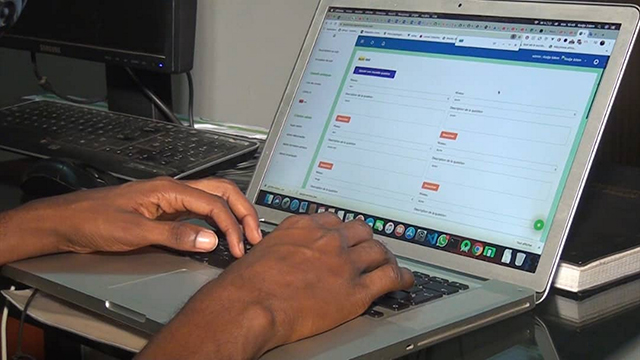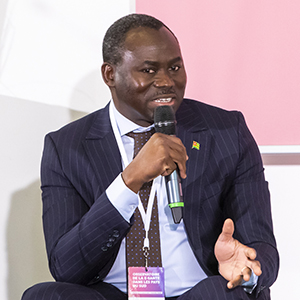Creation of the National Digital Health Center
— Togo —

BACKGROUND
In 2021, Togo’s minister of Health and Public Hygiene asked the Foundation to help it draw up and roll out a national eHealth strategy. The creation of a “National Digital Health Center” marks an essential step forward in the drive to provide a coherent, sustainable development framework.
In Togo, the Fondation Pierre Fabre already lends its support to a program that treats people with albinism and contributes to the “TéléderTogo” project. Since 2021, it has been assisting the Ministry of Health and Public Hygiene with the creation of an eHealth reference center: the National Digital Health Center (CNSD). Like other countries in this part of Africa, Togo has a high rate of infectious diseases and the majority of its healthcare resources are concentrated in urban areas.
Devising a national digital health strategy is based on recognizing the huge potential of digital technology applied to health, especially since the 2020 health crisis, and on a political decision to work toward Universal Health Coverage (UHC) by 2030.
Structuring and supporting eHealth actions in the long term, at national level
The creation of the CNSD is an important step toward setting up an eHealth governance structure with a solid national development plan.
Two initial deployment areas: dermatology and healthcare for mothers and babies
The work undertaken as part of this collaborative initiative targets two medical disciplines:
- Ongoing support for the Téléder Togo teledermatology project (link), which was extended in 2021 and is now running at full capacity;
- Development of a project focusing on healthcare for mothers and babies, with the creation of a tele-ultrasound service, set up with the support of the Foundation. Pregnant women will be offered access to an ultrasound examination for prenatal care and treatment of obstetric emergencies in 10 health centers across the country.
An assessment phase has also been scheduled by the partners, with the goal of analyzing the concrete impact of the activities on the health of target populations, and putting together models that can be replicated in other countries in the African sub-region.
KEY FACTS
_____
Priority
eHealth
Programme
Since 2021
Type of involvement
Objectives
- Carry out antenatal monitoring and diagnose high-risk pregnancies
- Enable healthcare professionals in rural areas to perform ultrasounds with assistance from an expert located remotely
THE LATEST PROGRESS
_____
Launch of the preparatory phase
Structuring of the project: 10 health centres will be equipped with ultrasound scanners and IT equipment, 20 healthcare professionals will be trained in how to perform the examination and use the telemedicine platform

The National Digital Health Center will be responsible for operational governance of digital health activities, making sure the basics are taken care of: interoperability and project conformity, as well as collection of health data to help set up epidemiological surveillance. We are extremely grateful to be able to draw on the Foundation’s expertise to help us set up a digital health environment in Togo.”
Dr Aristide Afèignindou GNASSINGBE
Minister-counsellor in charge of Health, Permanent Mission of Togo to the United Nations in Geneva, and national digital health coordinator in Togo
ACHIEVEMENTS AND FUTURE INITIATIVES
Achievements
Formal creation of a national eHealth strategy and governance structure
Creation of the National Digital Health Center
Ongoing support for the dermatology tele-diagnosis project
Launch of the tele-ultrasound service and training of 20 healthcare professionals in 10 health centers (equipped with ultrasound scanners and equipment for transferring images).
PARTNERS
- Ministry of Health, Public Hygiene and Universal Health Coverage
See also
The Global South eHealth Observatory
The Global South eHealth Observatory, a Fondation Pierre Fabre initiative, is designed to identify, document, promote and help develop eHealth initiatives that improve access to quality healthcare and medicines for the most disadvantaged populations in ressource-limited countries.
30/07/2018See also
EHealth degree with four African universities
The degree is awarded by the Universities of Bamako, Cheikh Anta Diop in Dakar and Félix Houphouët-Boigny in Abidjan, in partnership with the Fondation Pierre Fabre.
29/10/2019Follow our action
Mobile Clinics in the Central African Republic: Caring for Survivors of Violence
This unique initiative in the Central African Republic enables thousands of women to access crucial healthcare services and rebuild their lives.





